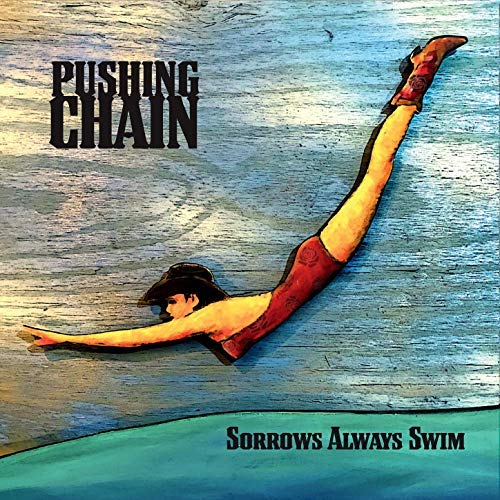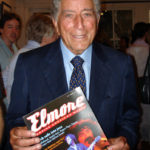Artist: Pushing Chain
Album: Sorrows Always Swim
Label: Kingswood Records
Release Date: 09.10.2018

Too many Americana albums sound so retro that it feel can feel a little silly listening to them. With some bands, the music is so well-tread and their sound so parochially defined, you may as well listen to the original artists. Great Americana albums build upon classic sounds, but find their own voice within them. Pushing Chain successfully display their original voice on Sorrows Always Swim, their third album.
Pushing Chain is led by singer/guitarist Boyd Blomberg and singer/violinst Adam Moe. Their music is an amalgamation of bluegrass, country, and folk, with lots of impressive instrumental breaks. The instrumentation is classic Americana. Where Pushing Chain forks is in the songwriting, which has lots of brief, modern inflections, rooting the album in the present.
The title track is a great example of this. It’s a familiar country-inspired tune, complete with reverb-laden guitar, Appalachia-approved fiddle, and waves of deep organ. What prevents it from being another run-of-the-mill crying-in-your-beer country song is the phrasing of the chorus, which is upbeat and modern.
They do something similar on “Once I Loved a Woman,” which features the expected accoutrements of fiddle and sad piano, but which also has a modern melody straight out of late 90s alternative rock. The temporal and genre emulsification gives Pushing Daisy’s songs an exciting energy. Rather than feeling like you’re listening to something dusty and useless, the songs feel alive and of-the-world.
Which isn’t to say Sorrows Always Swim suffers from being overly shiny and contemporary. Each of the album’s 12 original songs could pass for a standard. Their lyrics are authentically depressing, as seen on “Yesterday’s Coffee”: “Drinking yesterday’s coffee and tomorrow night’s wine / One’s cold and bitter, the other tastes fine.” The beauty of Sorrow Always Swim is that Blomberg and Moe allow their music to be influenced by everything they’ve heard, rather than limiting their songwriting to just one section of their record collection.
—Steven Ovadia







Be the first to comment!